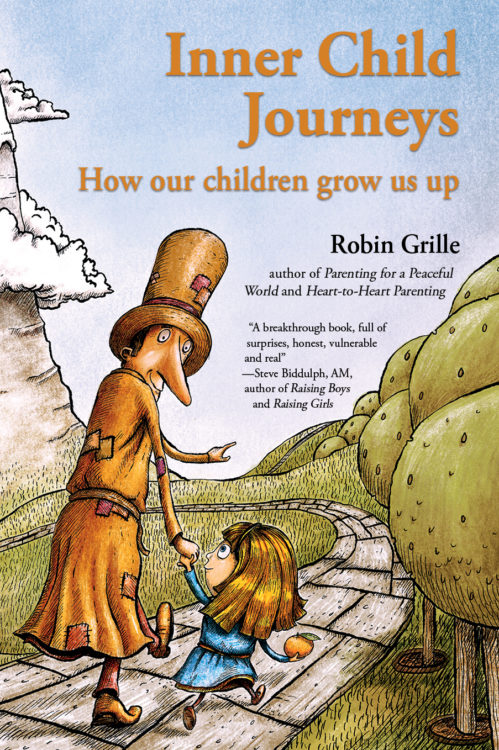Towards A New Image Of Ourselves
An excerpt from the new book Inner Child Journeys by Robin Grille
We have entered a new era in which the reality of body-memory, as a common and powerful driver of human behaviour and perception, has gained wide academic and cultural acceptance. We have come to understand that our emotional problems are doorways to learning and development, should we choose to enter through. Simply by being themselves our children trigger us, they push us to free ourselves from our illusions and projections; the recurring nightmares from our past.
Healing is not so much about repair; it is not that dreary. Most of all, healing is an adventure. Inner Child work is not merely about finishing the business of our childhoods; it also has the purpose of reclaiming faculties that might have been lost along the way. I don’t believe we need to grow out of being childlike. In fact, we thrive and live well to the degree that we maintain a direct line of communication with our Inner Child, in order to access his or her invaluable gifts. What are some of the faculties of childishness that we can benefit from throughout our lives? Let’s see…well:
What about the ability to be awed, to wonder at the many miracles of the natural world that surrounds us? Without wonder, life stagnates.
What about playfulness? Without it, we cannot think laterally, step outside the box, invent or create – we shrivel up and become humourless and bland. Much worse: without the free-mindedness to be playful and innovative, we lose our viability as a species.
What about cheek, mischief and devilishness? Without it we become stuffy, stuck in behavioural habits that stifle our aliveness.
And what about the child’s bottomless hunger for learning? Without this, we lose vitality and rapidly decline in health and happiness. Without the innocence of a child, the acceptance of mystery and the unknown, we remain armoured against transformative experiences, unable to surrender to falling in love, to ecstatic or numinous experiences, or to deeper states of connectedness.
Children are role models for me when they ask for the simple things they need without shame or guile. They ask to be held, they ask for companionship, a song, a game, a hug. And sometimes, they even ask to be left alone. Sublime directness, untrammelled by enculturation. We would sound more like them, fresh and uncomplicated, had we not been so shamed, so manipulated, so punished and so abandoned.
Each successive stage of childhood, from before birth to adolescence, is designed to grant us a new layer of emotional intelligence with unique tools and abilities that are meant to stay with us for life. Fortunately, we have ways to retrieve and reclaim any of the childlike strengths that we may have abandoned along the way. Our wellbeing and survival, as individuals and as communities, depends on our free access to all these developmental assets.
The most physically healthy and vibrantly happy old folk that I have met have one thing in common: They can belly-laugh, out loud. They find magic in the world around them. They take few things seriously – but they are passionate and dogged about the things that really matter to them. They enjoy learning new things well into ripe old age.


